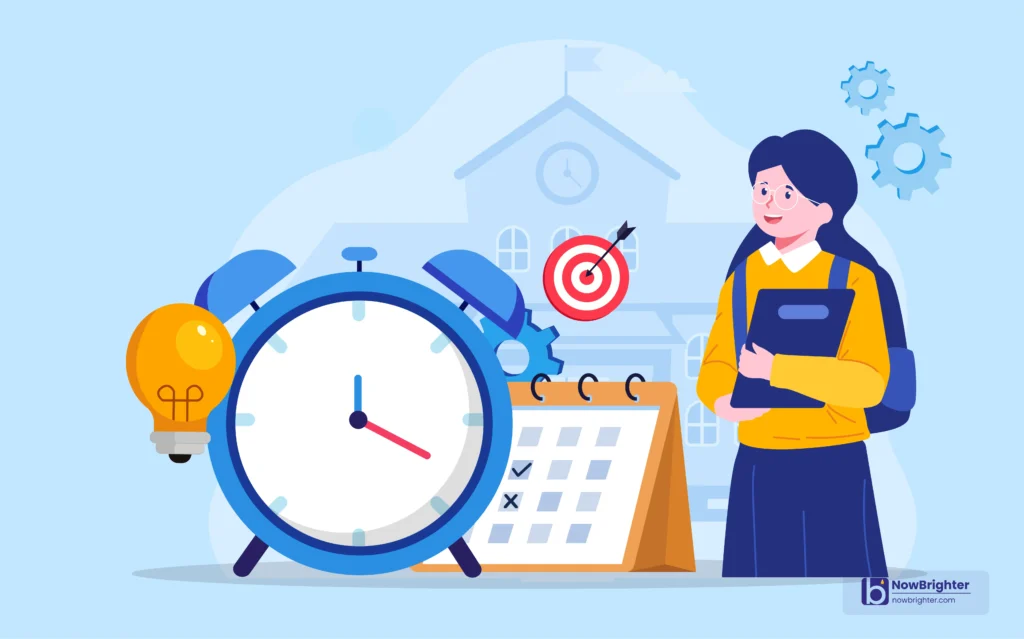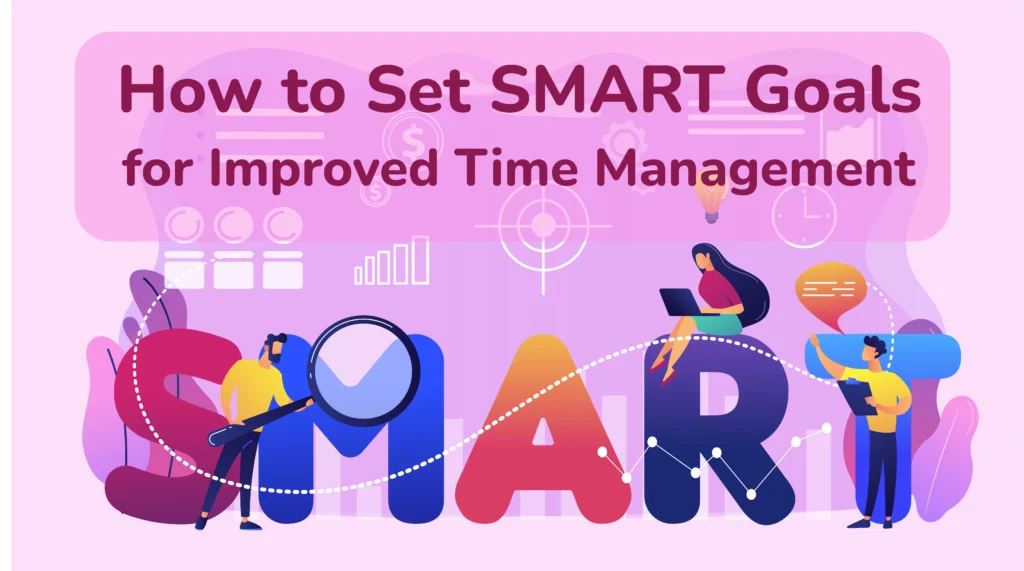Time Management Strategies for High School Students
High school is one of the most transformative stages in life. It’s a time filled with academic demands, extracurricular activities, social events, and personal growth. But with all these responsibilities, it can be overwhelming for students to manage their time effectively. Developing strong time management skills early on is essential, not only for academic success but also for reducing stress, achieving balance, and preparing for future challenges.
In this blog, we will explore practical time management strategies specifically tailored for high school students. Whether you’re struggling to stay on top of assignments or looking for ways to balance your studies with sports, hobbies, and personal life, these tips will help you take control of your time and get the most out of your high school experience.

Why Time Management is Crucial for High School Students
As a high school student, you’re expected to balance academics, extracurricular activities, and personal time—often all at once. This is where time management becomes critical. Without a plan in place, you can easily find yourself falling behind on assignments, feeling overwhelmed by deadlines, or sacrificing personal time for schoolwork.
Time management isn’t just about getting more things done; it’s about getting the right things done efficiently. With good time management, you can improve your academic performance, find time for activities you enjoy, and reduce the stress that comes from trying to juggle too many responsibilities at once.
Challenges and Importance of Time Management
Common Time Management Challenges
One of the most common time management challenges for high school students is procrastination. Whether it’s putting off studying for a test, delaying homework, or avoiding big projects until the last minute, procrastination can make your workload feel even more overwhelming. Often, this happens because the task feels too large or because distractions like social media, TV, or texting are more appealing.
Another challenge is distractions. In the digital age, students have more distractions than ever before. Between social media notifications, streaming services, and text messages, it’s easy to get sidetracked and lose focus, especially when it comes to studying or doing homework.
Many students also face overcommitment. Trying to balance schoolwork, extracurriculars, sports, part-time jobs, and social life can lead to burnout. Without proper time management, students can quickly become overwhelmed by having too much on their plate and not enough time to complete everything.
Why Time Management is Essential
Time management is essential for success, not just in high school but also in life. With effective time management, you can:
- Reduce stress: Knowing how to manage your time effectively prevents the last-minute rush and reduces anxiety over unfinished tasks.
- Improve academic performance: By organizing your study time and focusing on high-priority assignments, you’ll be better prepared for exams and projects.
- Maintain balance: Good time management allows you to balance academics, extracurriculars, and personal life, ensuring that none are neglected.
- Develop lifelong skills: The time management habits you build in high school will carry over into college, your career, and your personal life.
Creating an Effective Study Schedule and Prioritizing Tasks
Time-Blocking for Study and Activities
One of the most effective ways to manage your time is through time-blocking. This method involves scheduling specific blocks of time for different tasks throughout the day. Instead of simply creating a to-do list, time-blocking allows you to allocate dedicated time for each task, ensuring that every responsibility is addressed.
For example, you could block out two hours after school for homework, followed by an hour for extracurricular activities or personal time. The key is to create a balanced schedule that allows for both work and relaxation, so you don’t feel burnt out.
Time-blocking also helps to keep you on track during study sessions. Rather than feeling like you have endless time to work on a project, setting a clear time limit can increase your focus and productivity. Consider using apps like Google Calendar or Trello to create your time-blocked schedule and stay organized.
Using the Eisenhower Matrix to Prioritize
To ensure you’re focusing on the most important tasks, consider using the Eisenhower Matrix. This simple yet powerful tool helps you prioritize tasks based on their urgency and importance. It divides tasks into four categories:
- Urgent and important: Tasks that need immediate attention, such as assignments due tomorrow or studying for a test.
- Important but not urgent: Tasks that are essential but don’t need to be done right away, like preparing for an upcoming project or studying for a long-term exam.
- Urgent but not important: Tasks that need attention but aren’t critical, such as replying to non-essential texts or attending a social event.
- Not urgent and not important: Distractions that waste time, like scrolling through social media or playing video games excessively.
By categorizing your tasks, you can focus on what matters most and avoid spending too much time on low-priority activities. This matrix helps you stay organized and ensures that you’re not overwhelmed by the sheer volume of things you need to do.
Balancing Academics with Extracurricular Activities
High school isn’t just about academics; it’s also a time to explore hobbies, join sports teams, participate in clubs, and develop personal interests. However, balancing these extracurricular activities with your schoolwork can be challenging.
The key to managing both is prioritization and time management. Start by identifying your most important extracurricular activities—those that bring you joy, help you develop skills, or contribute to your long-term goals. Then, schedule these activities into your weekly routine, making sure that you’re not overloading yourself with too many commitments.
Remember that it’s okay to say no sometimes. If your schedule is already full with schoolwork and one or two extracurricular activities, avoid taking on additional responsibilities that might lead to burnout. Balance is essential to maintaining both academic success and personal well-being.
≫ Related Post: The Pomodoro Technique: How to Stay Focused at Work
Overcoming Procrastination and Minimizing Distractions
Techniques for Beating Procrastination
Procrastination is a common problem for high school students, but there are several techniques you can use to overcome it. One popular method is the Pomodoro Technique, which involves working in short, focused intervals followed by a brief break. Typically, you work for 25 minutes (called a “Pomodoro”) and then take a 5-minute break. After four Pomodoros, you take a longer break of 15-30 minutes.
This method helps you break large tasks into manageable chunks and creates a sense of urgency to stay focused during each Pomodoro. Over time, it can help you build momentum and develop a habit of working consistently without procrastinating.
Another strategy is task batching, where you group similar tasks together and complete them in one go. For example, instead of checking your email or texts throughout the day, set aside a specific time to respond to messages. This helps reduce distractions and prevents you from jumping between different tasks, which can slow down your productivity.
Identifying and Limiting Distractions
Distractions are everywhere, especially when you’re trying to study or complete homework. Social media, texting, TV, and video games can easily pull your attention away from your tasks. To minimize these distractions, start by identifying your biggest time-wasters. Ask yourself:
- Do I spend too much time on my phone during study sessions?
- Am I watching TV or playing video games when I should be working on assignments?
Once you’ve identified your distractions, take steps to reduce or eliminate them. For example, put your phone on Do Not Disturb mode during study sessions, or use apps like StayFocusd or RescueTime to block distracting websites while you’re working.
Creating a distraction-free study environment is also important. Find a quiet place to study where you won’t be interrupted by family members, friends, or background noise. By minimizing distractions, you’ll be able to focus better and complete your tasks more efficiently.
Tools and Apps for Better Time Management
Scheduling and Task Management Apps
In today’s digital world, there are numerous tools and apps designed to help students manage their time effectively. Here are a few popular ones:
- Notion: is a highly flexible tool that combines task management, scheduling, and note-taking in one platform. Its customizable templates and databases allow users to tailor the app to their needs, making it ideal for everything from personal to professional use. Whether you’re tracking daily tasks or managing complex projects, Notion’s versatility stands out.
- Google Tasks is a simple and straightforward app that integrates seamlessly with Gmail and Google Calendar. It’s perfect for creating quick to-do lists, setting reminders, and staying on top of deadlines. For those already using Google’s suite of tools, this app offers an effortless way to manage tasks across devices.
- Todoist is a popular task management app that combines a clean design with powerful features. It’s great for managing both personal and work-related tasks, offering tools like productivity tracking and integrations with other software to streamline your workflow.
- Trello is a visual task management tool that uses a card-based system to organize tasks and projects. Its Kanban-style boards are perfect for tracking progress, whether you’re working individually or as part of a team. Trello’s collaborative features make it especially useful for group projects and team workflows.
- ClickUp is an all-in-one productivity platform designed to handle tasks, schedules, and workflows. With multiple view options, like calendars and Gantt charts, ClickUp is highly versatile and suits both individual users and large teams looking for robust project management tools.
- Asana is ideal for managing complex projects and coordinating with teams. It offers advanced features like task dependencies and workflow automation, making it a powerful choice for professionals handling detailed and collaborative tasks.
These apps help you stay organized, remind you of upcoming deadlines, and ensure that you don’t forget important assignments or commitments.
Tools to Minimize Digital Distractions
If digital distractions are a major obstacle to your productivity, consider using tools designed to limit your access to distracting websites or apps. For example:
- StayFocusd: A browser extension that restricts the amount of time you can spend on distracting websites.
- RescueTime: A time-tracking tool that helps you understand how you’re spending your time and block unproductive activities.
- Forest: A productivity app that encourages you to stay off your phone by growing a virtual tree while you study.
These tools can help you stay focused on your work and minimize the temptation to check social media or browse the internet during study sessions.
Building Long-Term Time Management Habits
Developing Self-Discipline and Accountability
The most important part of time management is developing self-discipline. It’s easy to create a schedule or set goals, but the real challenge lies in sticking to them consistently. Building self-discipline means holding yourself accountable for completing tasks on time, even when you don’t feel motivated.
To help develop self-discipline, create small, achievable goals and track your progress. Each time you complete a task on time, you’ll feel a sense of accomplishment that motivates you to keep going. Additionally, consider finding an accountability partner—a friend or family member who can help keep you on track and encourage you when you’re struggling.
Celebrating Progress and Staying Motivated
Finally, don’t forget to celebrate your progress. Whether it’s completing a major project or simply staying on top of your assignments for a week, take the time to acknowledge your efforts. Celebrating small wins can keep you motivated and remind you that your hard work is paying off.
Reward yourself with something fun, like watching a movie or hanging out with friends, after completing a big task. These rewards provide positive reinforcement and make the process of developing time management habits more enjoyable.
Conclusion: Mastering Time Management for Academic and Personal Success
Mastering time management is key to thriving as a high school student. By developing effective strategies like time-blocking, prioritizing tasks, reducing distractions, and using the right tools, you can take control of your time and achieve both academic and personal success.
Building these habits now will not only help you excel in high school but will also prepare you for future challenges in college, work, and life. With discipline, focus, and a well-structured plan, you can make the most of your high school years and enjoy a healthy balance between school and personal growth.
















